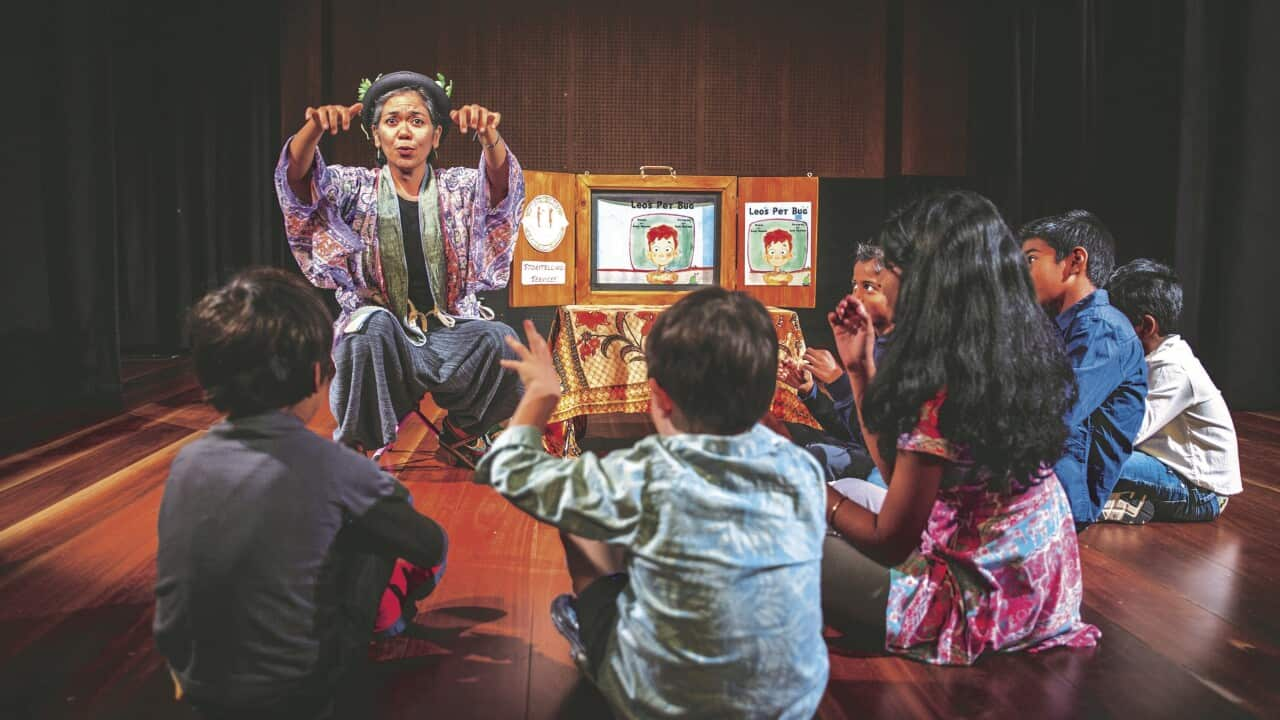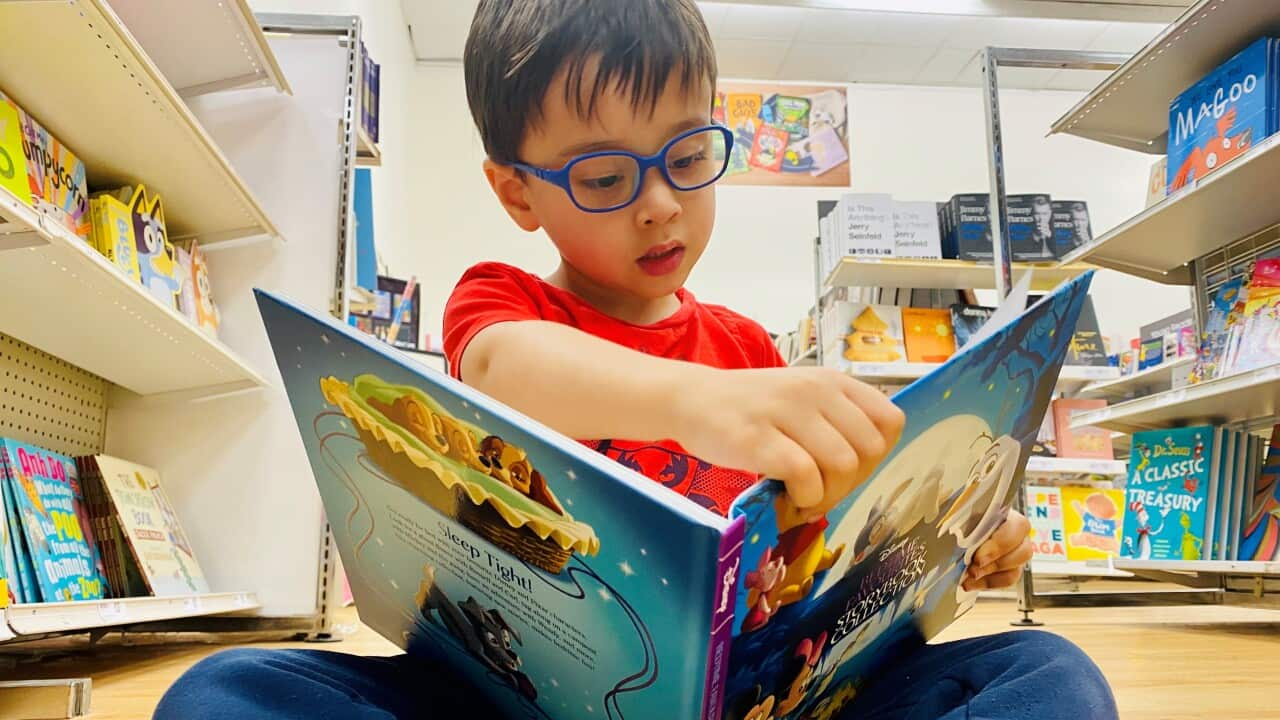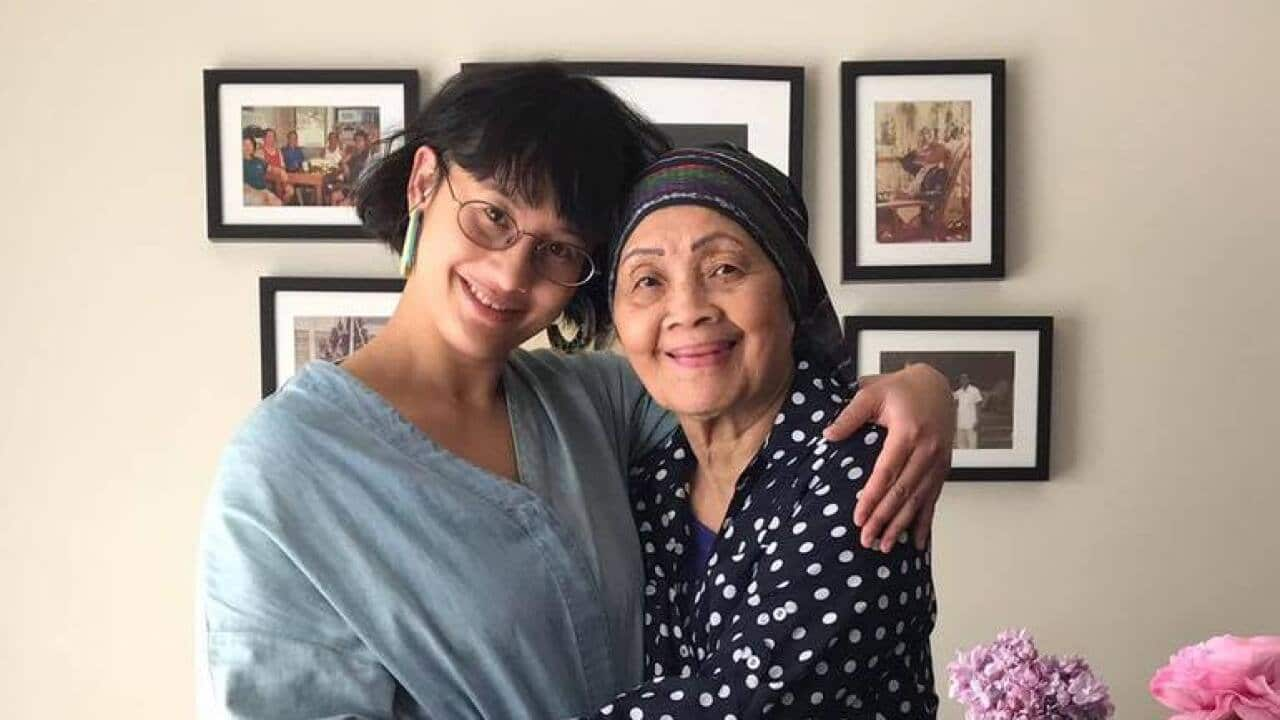Key Points
- Speaking one's native language can be a challenge for many migrants in Australia, including Filipinos.
- The Philippines is rich in language - there are over 134 languages being spoken in the country according to the Commission on the Filipino Language.
- With projects like 'Kwentong Pinoy', preservation of the Filipino culture is possible.
LISTEN TO THE INTERVIEW
'Kwentong Pinoy' aims to promote and encourage usage of Filipino language amongst the youth in Victoria.
18:54
'Stories with a Filipino heart'
Centred on the theme of 'Pusong Pinoy' [the heart of the Filipino], the 'Kwentong Pinoy: Storytelling contest' is launched to celebrate the rich Filipino language.
"It’s open to primary or secondary students with the aim to promote and encourage usage of Filipino language amongst the youth," says Janeca Gross, president of the University of the Philippines Alumni in Victoria (UPAV).
Gross points that "one of the challenges we are trying to overcome is to keep this language [Filipino] alive."
"When you are a migrant or you are trying to settle into a new country, you try to adapt to the language that you are adapting to, in case of Australia, it's Australian English."
"Over time the more you speak Australian English the less likely that you speak your native language or the language you are born with."
With the support of the Victorian Multicultural Commission, UPAV focuses on encouraging young generations of Filipino to enrich learning their parents' native language through creative storytelling.
Participants are expected to make several short films or talent performances using Filipino or any language recognized as a Filipino language.
Entries to the storytelling contest can be a short film or talent performance, must be delivered in Filipino or any language that is recognised as a Filipino language.
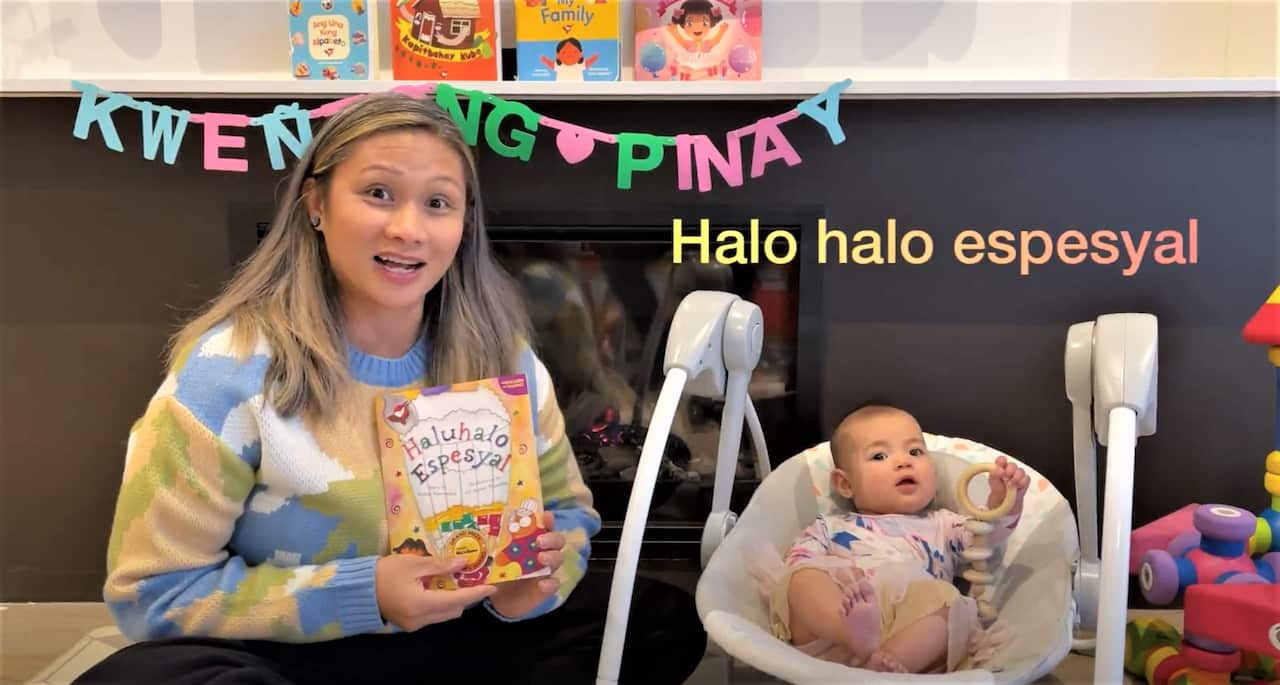
As long as your family is open to learn the Filipino language – that’s one big step, says mum of two, Janeca Gross. Credit: Supplied
The rich Filipino language
“Filipino is quite broad in terms of whether it’s a dialect or a national language," stresses UPAV's convenor.
According to the 2016 Atlas Filipinas map published by Commission on the Filipino Language, there are over 134 languages and one national language (Filipino) present in the Philippines.
In the latest 2021 Australian Bureau of Statistics census, over 310,000 people residing in Australia were born in the Philippines.
And for many Filipinos in Australia, it is a challenge to continue speaking their native language on a daily basis since Australian English is commonly use across Australia.
Gross admits that she is experiencing such challenge herself. The Victorian resident is a native of Pampanga, but she also grew up in Malolos, Bulacan. But she can only speak Tagalog.
“My mum and dad speak 3 or 4 languages back in the Philippines but when I was growing up I didn’t learn the local dialects and I can only speaks Tagalog."
And now that she has her own family, she wants to pass on to her two children the language she grew up with.
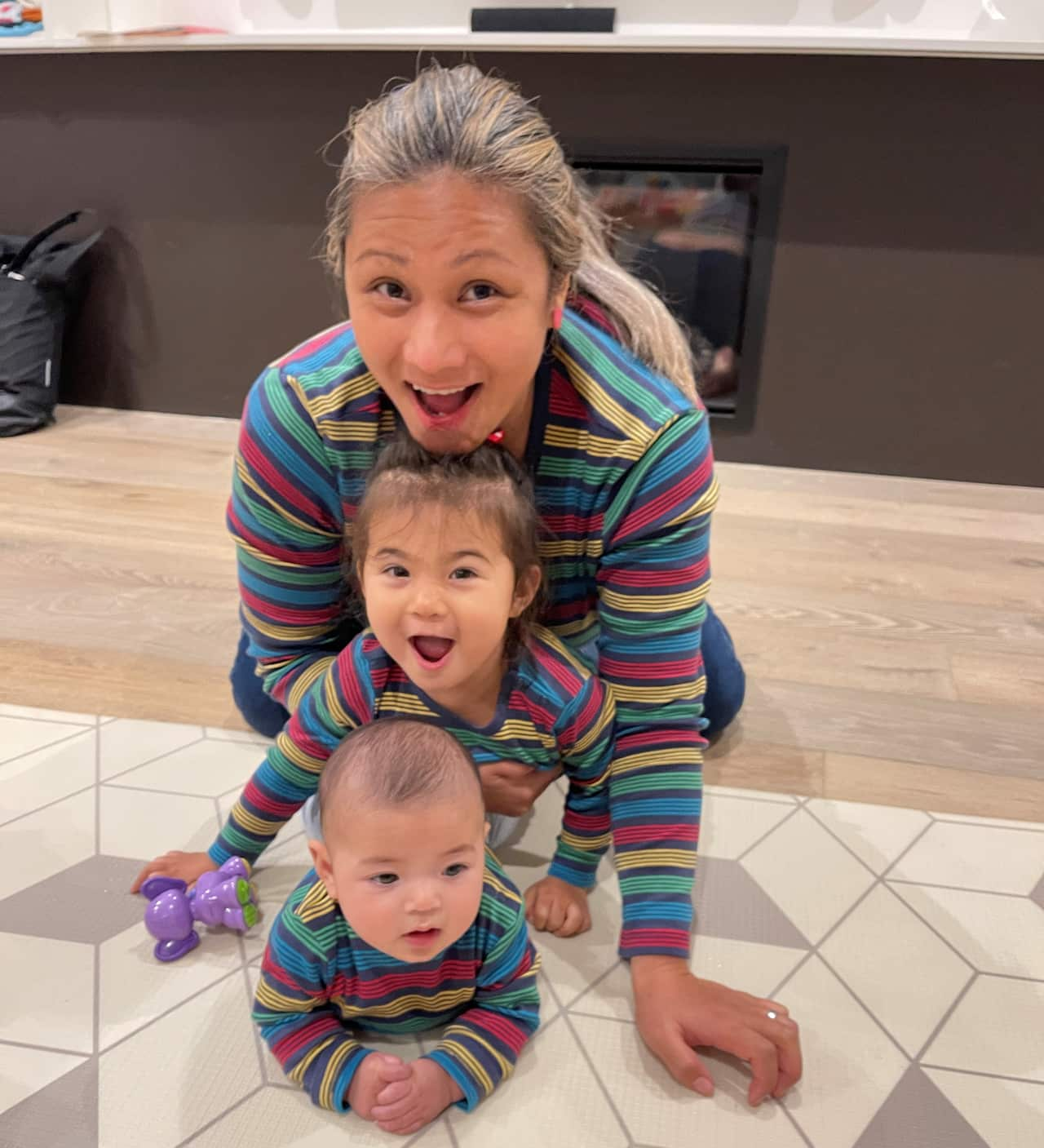
'As long as your family is open to learn the Filipino language – that’s one big step already.' Credit: Supplied by Janeca Gross
Be open to learn
“I know how difficult it can be when you don't have any immediate family who actually speaks Filipino or other dialects in the Philippines. It’s really difficult to speak a language that you want them to learn."
Gross admits it's not easy for her children to learn the Filipino language since her husband does not speak it either.
“My husband doesn’t speak Filipino, but he’s trying and that’s a good thing."
"As long as your family is open to learn the Filipino language – that’s one big step already," points Gross.
For her young children, “nursery books are very helpful in teaching my kids simple Filipino words. They also watch and listen to nursery rhymes in Filipino".
"If we can continue teaching them through our simple ways then it's good that we can continue to hear the language we grew up with and let our kids speak or learn them too."
"It uplifts our heritage and yes, we are actually rich in terms of language diversity."
On Sunday, September 4, in the UPAV’s culminating event, winners and participants to the 'Kwentong Pinoy' storytelling contest will be awarded.
Representatives from the Philippine Consulate General and Multicultural Arts Victoria are in attendance to talk about the arts industry in Victoria and the Philippines.
Performances include story coach Anna Manuel and the Philippine Language School of Victoria who will be performing the traditional ‘Sayaw sa bangko’ [chair dance]. A special treat from Chef Fred of barangay.com.au will see attendees taste some Filipino canapes.
